Key takeaways:
- Product iteration is essential for innovation, driven by user feedback that reveals unanticipated needs and improvements.
- Social innovation marketplaces foster collaboration among diverse stakeholders, driving social change and democratizing access to resources.
- Effective iteration relies on continuous improvement, experimentation, and collaboration, which enhances user engagement and creativity.
- Gathering user feedback through surveys, interviews, and focus groups is critical for understanding user needs and improving product usability.
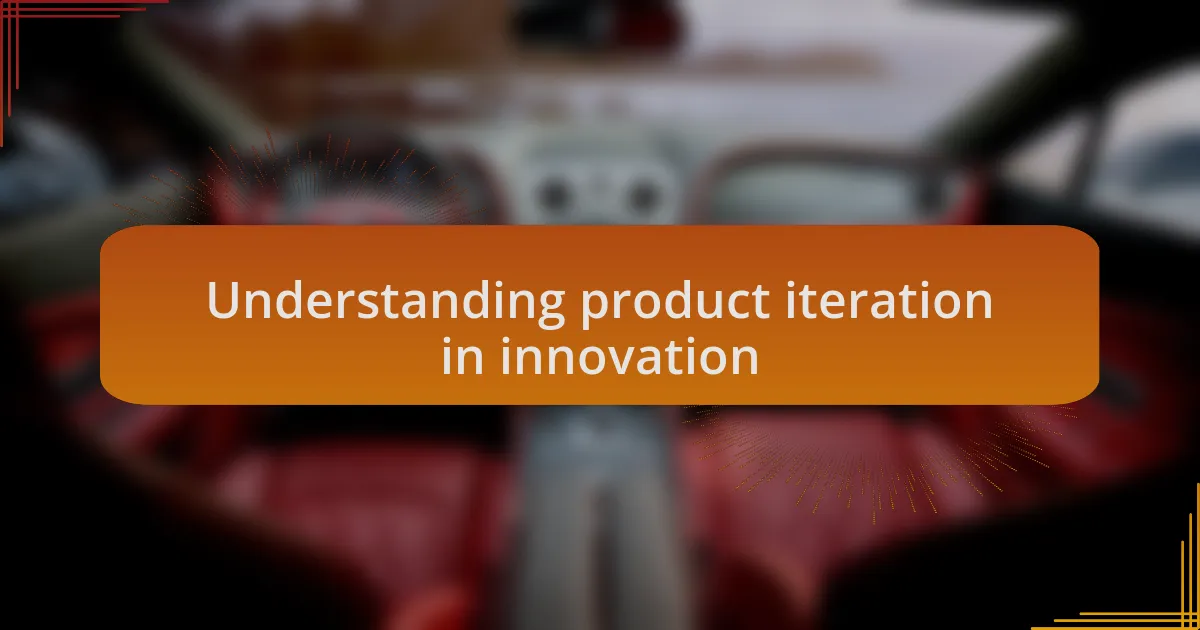
Understanding product iteration in innovation
Product iteration is a fundamental aspect of innovation, allowing teams to learn from real-world feedback and refine their offerings. I remember a project where we launched an initial version of a social platform, only to discover that users were expecting more community-driven features. Isn’t it fascinating how users can reveal needs we didn’t anticipate?
Iterating on a product is not just about making changes; it’s about embracing a mindset of continuous improvement. This journey often requires us to put aside our initial assumptions and really listen to our audience. In one project, after multiple iterations, our team realized that what we thought would be a hit feature was actually overlooked. Did that sting? Absolutely. But it also led to a breakthrough that significantly enhanced user engagement.
Embracing product iteration means recognizing that innovation is an evolving process, driven by user experience and insights. I’ve seen firsthand how valuable user feedback can be; it transforms a good idea into something truly impactful. When was the last time you adjusted a project based on user input and it led to unexpected success? It’s a reminder that the best innovations often come from being open to change.
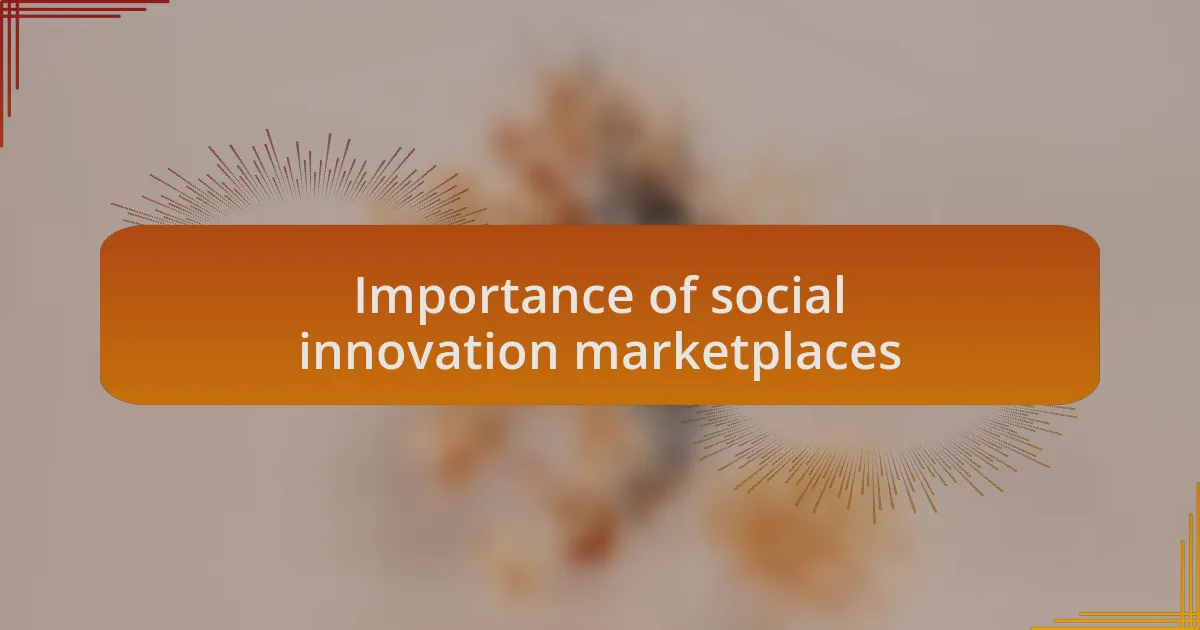
Importance of social innovation marketplaces
Social innovation marketplaces serve as vital ecosystems that connect diverse stakeholders, including entrepreneurs, funders, and local community members. I recall a time when I participated in a marketplace event where innovative ideas on sustainable energy were presented. Seeing local innovators showcase their projects and directly interact with potential investors sparked a sense of collaboration that was truly inspiring. Have you ever experienced that sense of community where everyone feels invested in one another’s success?
The importance of these marketplaces also lies in their capacity to drive social change through collaboration. In a project I was involved in, we witnessed firsthand how a simple platform could raise awareness about a particular social issue, attracting both talent and resources from unexpected places. When people come together to tackle shared problems, the solutions often exceed our expectations. Isn’t it amazing how a group of passionate individuals can ignite change?
Moreover, social innovation marketplaces help to democratize access to resources and opportunities. I remember being part of a workshop where participants from various backgrounds shared their ideas; it was incredible to see that anyone could pitch and be heard. This inclusivity not only fosters innovation but also ensures that a broader range of voices contributes to societal improvement. How often do we get a chance to learn from the unique perspectives of others in our communities?
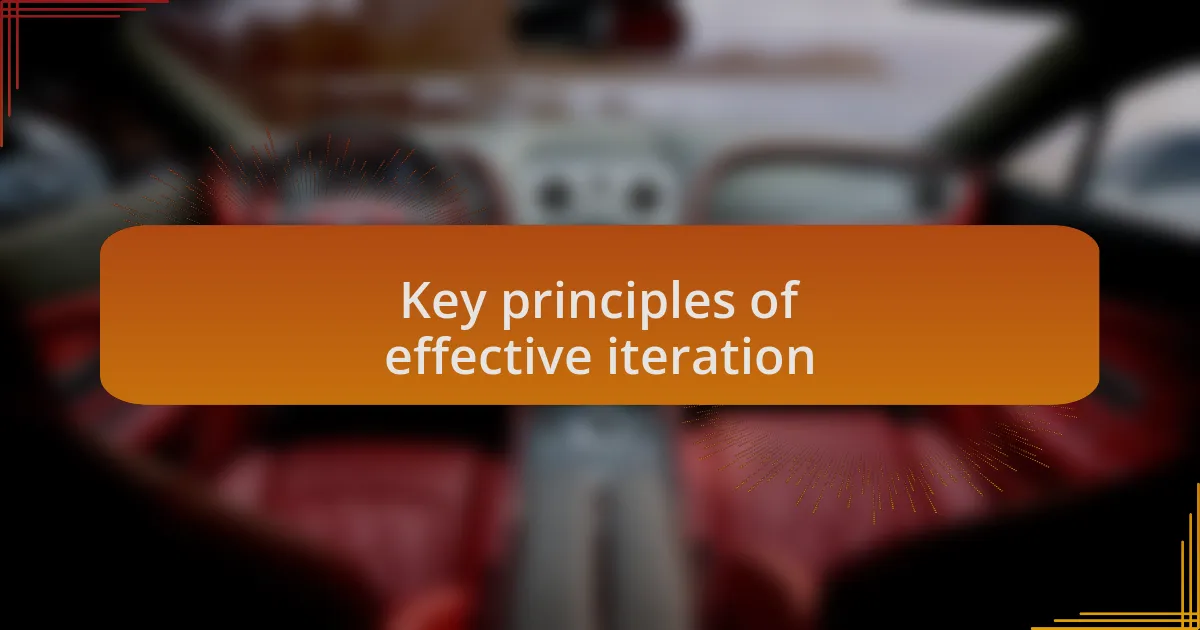
Key principles of effective iteration
Iteration is a dynamic process that thrives on feedback. One principle that I find essential is embracing a mindset of continuous improvement. For instance, when I launched my first online initiative, I encouraged users to share their thoughts on every aspect of the platform. Their feedback was nothing short of a treasure trove—I realized that every suggestion helped refine the user experience, making the platform more intuitive and engaging. Don’t you think that actively listening to users can transform a good project into a great one?
Another key principle is experimentation. I recall a series of A/B tests I conducted on a social innovation project website, where we tried different layouts and calls to action. The results were eye-opening! I learned that small changes could significantly influence user engagement. It made me wonder—how often do we overlook the power of simple adjustments in our efforts? Experimentation not only drives progress but also encourages a culture of creativity among team members.
Lastly, collaboration is paramount for effective iteration. I once partnered with a community group to co-create solutions for a local challenge. The collective insights we gathered led to more impactful outcomes than I could have imagined alone. Isn’t it incredible how synergy can amplify creativity? By working together and valuing diverse perspectives, we can iterate more effectively and respond to community needs in a meaningful way.
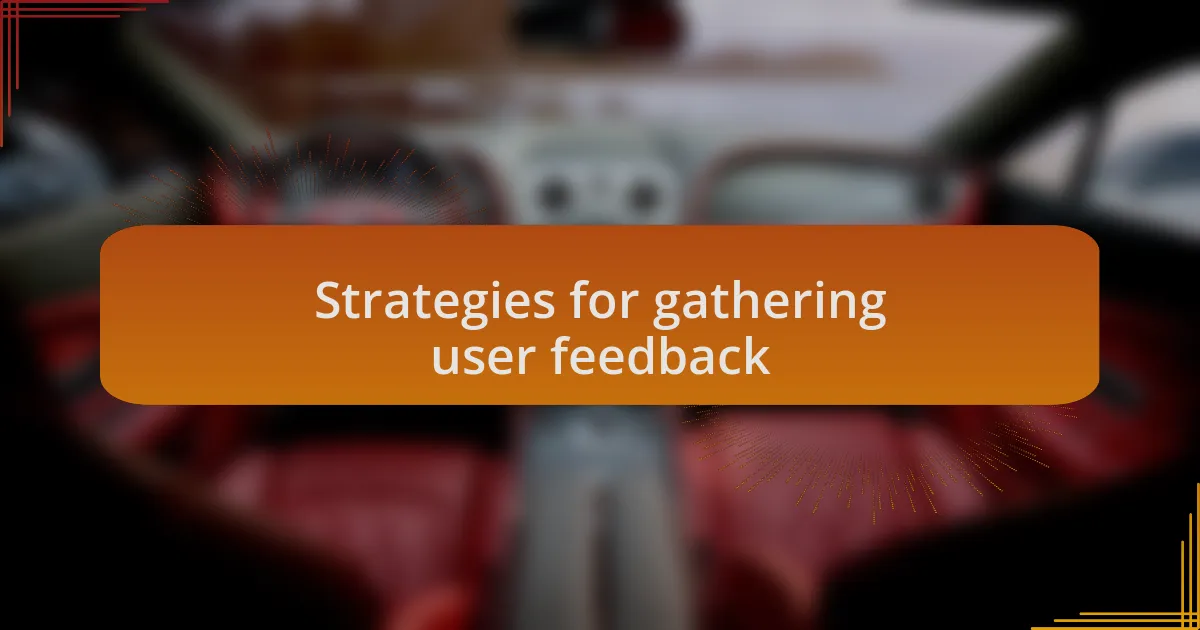
Strategies for gathering user feedback
Gathering user feedback can take various forms, but I’ve found that surveys are an invaluable tool. When I initially used them on my site, I focused on open-ended questions to truly capture users’ thoughts. The feedback poured in, revealing insights I hadn’t anticipated—like features they wished existed or issues that hadn’t crossed my mind. Have you ever thought about how a simple survey could unlock a wealth of information?
Another effective strategy is to leverage user interviews. I vividly remember how a conversation with a passionate user changed my perspective entirely. By simply asking about their experiences and challenges, I discovered ways to make our platform more user-friendly. It’s amazing how a personal connection can unveil deeper emotional insights that data alone might miss. Isn’t it fascinating how a dialogue can bridge the gap between our assumptions and the reality of user experience?
Lastly, I encourage hosting focus groups, where a diverse set of users can share their feedback in a collaborative environment. I once facilitated a session where participants brainstormed ideas and critiqued existing features. The energy in the room was palpable! Hearing different viewpoints ignited creativity and sparked discussions that informed our next steps. How often do we underestimate the value of bringing people together for candid conversations?
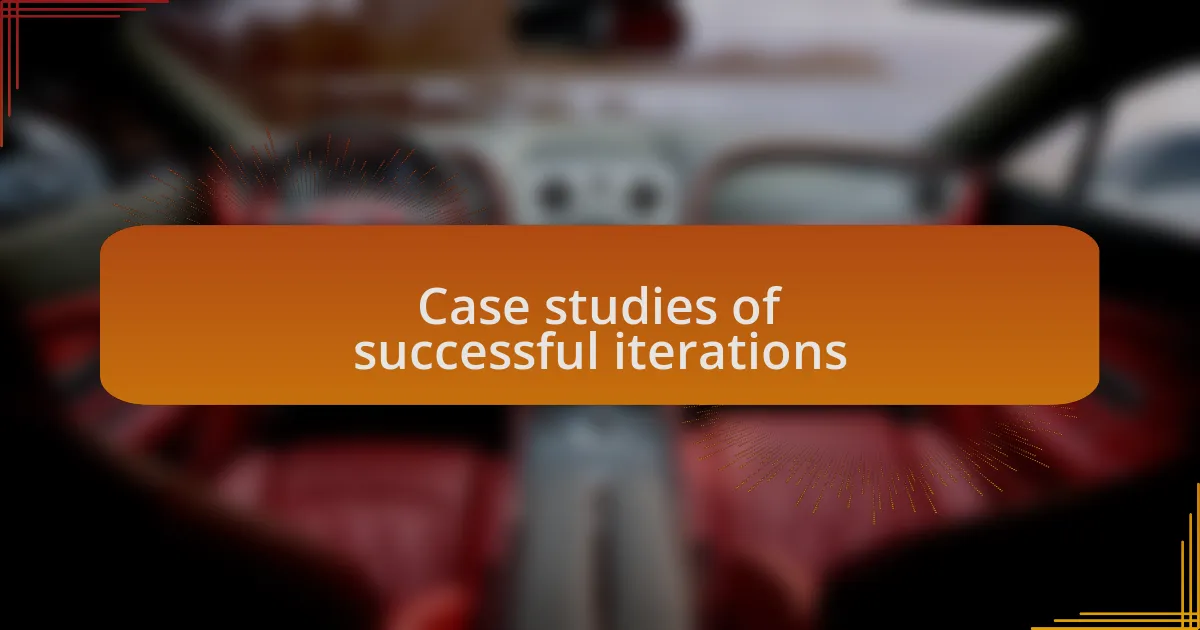
Case studies of successful iterations
One of the standout examples of successful iterations came from a project aimed at enhancing user engagement on our platform. After analyzing the feedback from our focus groups, we decided to revamp the dashboard, making key features more accessible and visually appealing. I distinctly remember the moment our team revealed the new design; the look on our users’ faces was priceless. Their excitement told me we were on the right track. Have you ever witnessed a direct response from users that makes all the effort worthwhile?
Another iteration involved simplifying the onboarding process based on user insights from interviews. Initially, it was cumbersome and often overwhelming. I implemented a step-by-step guide that gradually introduced new users to essential features. Shortly after, I received messages from users who expressed how much easier it was for them to navigate the platform. It’s moments like these that highlight the importance of listening—how often do we truly consider the first impressions we leave on our users?
A compelling case was a feature that allowed users to set personalized notifications. Initially, it was a simple alert system, but feedback revealed users desired more control. I took this input to heart and worked on integrating customization options. The response was overwhelming; users felt a greater sense of ownership over their experience. Reflecting on that, how crucial is it to provide users with the tools to shape their journey?